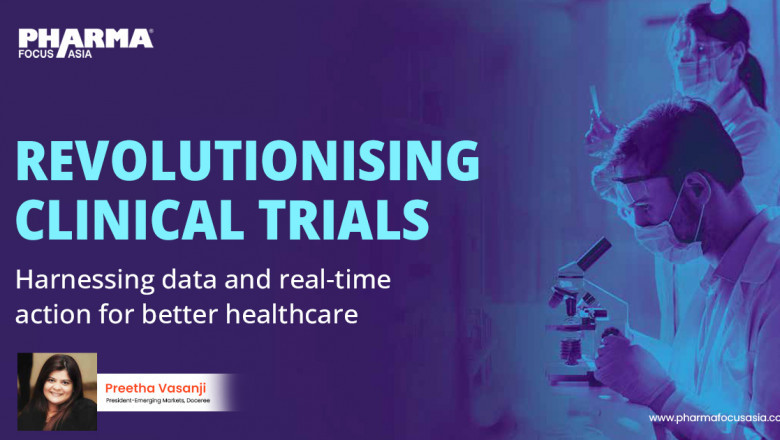views
Positive progression of clinical trials in the Asia-Pacific region over the last decade (contributing almost 50 per cent of new clinical trial activities globally) has turned the region into a hotspot for clinical research. While the region leverages its vast population as the ultimate power tool, it also faces challenges owing to the huge geographical, socio-economic and cultural differences in the population. To streamline the industry and continue with strengthened efforts, the first step is to create a patient recruitment ecosystem that is driven by data, and runs on real time action, thereby giving strong impetus to not just the number of clinical trials but also the cost of it.

The past five years have seen the Asia-Pacific (APAC) region emerge as a global hub for clinical trials, attracting pharmaceutical companies, research organisations, and healthcare professionals from around the world. With a diverse population, access to cutting-edge medical facilities, and a growing emphasis on healthcare innovation, APAC countries have become key players in the development of new drugs and therapies. Out of 27,000 clinical trials initiated in the year 2021, nearly half of them were done in multiple areas of the APAC region. One of the most significant advancements in this arena is the utilisation of real-time data in clinical trials. This article explores the impact of real-time data on clinical trials in the Asia-Pacific region and how it is revolutionising the way healthcare is delivered and research is conducted, accelerating the drug development process, enhancing patient outcomes, and reshaping the future of healthcare.
Before delving into the method of shaping the future of clinical trials, it is imperative to understand the current APAC landscape, importance of clinical research and trials in the region, emergence and transformation in trials, and
the factors driving the change.
Understanding the APAC hub
Clinical trials in the region are particularly significant for several reasons. APAC is home to a diverse population with varying genetic backgrounds and healthcare needs. This diversity makes it both ideal and a challenging location for conducting clinical trials, as results can be more representative of globally diverse populations. With a growing middleclass population and increasing healthcare expenditure, countries also offer pharmaceutical companies access to untapped markets. Clinical trials conducted in the region can help companies understand the unique healthcare needs and preferences of these populations.
Even when compared to the United States and Europe, APAC has a larger urban population and an increasing number of trial sites, which is a key indicator of a region's potential for growth. The density of trial sites in APAC is 3.1 per million urbanised population, which is significantly higher than the next lowest density in Europe, 22.2 per million. This indicates that APAC has a great deal of potential to offer to sponsors looking to benefit from growth.
Furthermore, conducting clinical trials in APAC is often more cost-effective compared to western countries, which can be a significant advantage for pharmaceutical companies looking to optimise their research budgets. Many countries in the region have historically been supportive of biotech research and development, with incentives such as rebates offered in Australia and ongoing investment from the Chinese government in biotech development. Hence, despite the current global economic and industry uncertainty, APAC is expected to remain a promising and resilient market.
Evolving Landscape of Clinical Trials
Historically, clinical trials in the region (and globally) have followed a rigid and sequential process. Researchers design a protocol, recruit participants, collect data over an extended period, and analyse the results after the trial concludes. This approach, while being scientifically rigorous, is slow and expensive. Moreover, it does not always reflect real-world patient experiences or account for the dynamic nature of diseases and treatments.
Learn more: https://www.pharmafocusasia.com/clinical-trials/revolutionising-clinical-trials






















Comments
0 comment